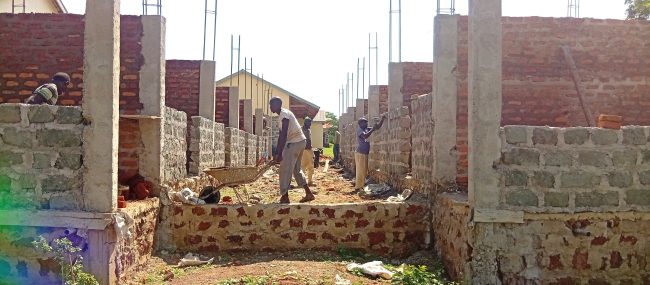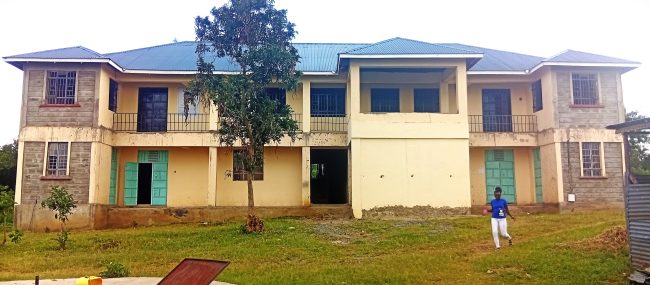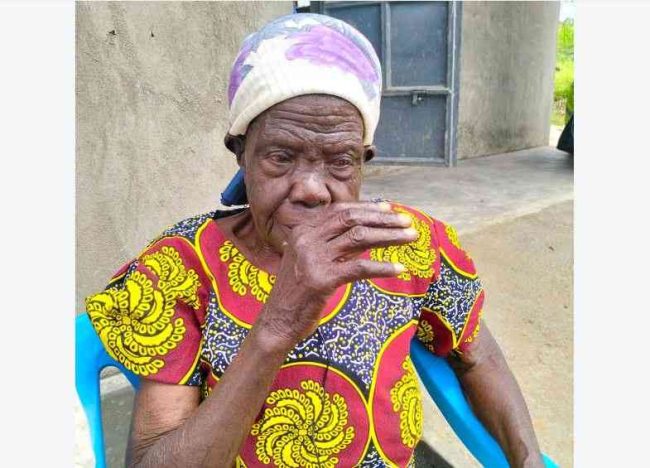Donate through Global Giving
GMCDG is a registered and certified member of Global Giving and this make it possible for North American donors to make tax-deductible gifts to GMCDG.
Donations in support of Community Housing Programme may be made via
Link: https://www.globalgiving.org/projects/kenya-build-houses-for-poorest-rural-families/ Short link: http://goto.gg/70736
Donations in support of the boys’ hostel construction may be made via Link: https://www.globalgiving.org/
Donations to pay school fees to support 120 vulnerable children at Got Matar Secondary School and provide free school lunch programme for the 420 children at Got Matar Institute of Technology to enhance their concentration and well being in school and also prevent them from dropping out may be made via Link: https://www.globalgiving.org/
Summary:
Got Matar Community Development Group (GMCDG) aims to provide low-cost decent housing for 30 very poor local rural families within 3 years. This will protect them from risks of building collapse, lack of security and bad sanitation and will enable them to live in dignity.
All planning and building work will be done by teaching staff and students of our Community’s flourishing Institute of Technology (IoT) where Global Giving is already helping students to construct a much needed boys’ dormitory.

In addition to their normal training, 140 students who are being taught to be masons, plumbers, electricians, blacksmiths, and carpenters will gain valuable joint learning by doing experience through being retained as paid in-house apprentices. This will enable them to pay their tuition fees and to take pride from helping people in need.
Funding Amount/Goal:
284,000 US DOLLARS.
Our goal is to raise US$284,000, of which direct costs of house building would be US$ 210,000 and the rest would pay for extra building equipment (US$60,000) and extra management costs (US$14,000).
Challenge:
Around 2000, our Got Matar community was ravaged by HIV/AIDS that killed many of its working-age population and left 30% of children as orphans mostly cared for by surviving grandparents.
We had to accept that we had lost a generation and realised that we would have to work together to do everything in our power to address this disaster by creating good educational opportunities for our remaining children.
We have stuck to this goal for 25 years and – with support from donors and the government-we have upgraded our 10 primary schools, created a secondary school with almost 1,600 students, and, since 2012, have been building, equipping and managing the non-profit IoT where over half of the fee-paying 400 students are female.

We are proud that many of our former students are doing a lot to uplift the local economy but we are very worried that hundreds of families still live in deep poverty, visibly reflected in deplorable housing conditions.
Solution:
We have decided to extend the IoT’s practical training activities so that these have a direct impact on poverty while enriching students’ learning through engaging them in real-life situations. For this, students will be retained as paid apprentices to work together on planning and building houses out of their normal study hours. To strengthen a sense of ownership, new house owners will be invited to help, to the extent they can, in building (e.g land clearing, painting).
We have tested this approach by building a new cottage for Mary
 who is the impoverished 80-year old widow of the land owner who gave the Community the land on which the Secondary School and IoT are built.
who is the impoverished 80-year old widow of the land owner who gave the Community the land on which the Secondary School and IoT are built.
The new building (400 sq ft) has been constructed entirely by student apprentices and their instructors, for a direct cost of US$7,000, close to Mary’s collapsing lodging.

Both Mary and the students and their instructors are very happy! Please click on the link: (https://www.gotmatar.org/community-housing-programme/) to read the full story and see photos.
Long-Term Impact:
Enabling poor families to live in better conditions in rural areas will reduce inequality, lead to better health and hopefully stimulate lasting rural development.
Students who have taken part in the programme will be better qualified for employment in Kenya’s growing construction industry than those whose practical training has been confined to single skill courses in the IoT’s specialised workshops.
The existence of the programme, in which students will earn enough from their practical training to meet their tuition fees, is likely to stimulate increased enrolment in the IoT.
The house building programme also sets a valuable precedent for students attached to other IoT training departments, such as ‘Beauty Therapy’ and ‘Food and Beverage’ ,to have part of their training involve voluntary activities to improve health and nutrition in the community.
We also hope that our donors will draw satisfaction from being able to be sure that their donations are being put directly into such worthwhile investments.
[Please note that donors who, alone or in a group, meet the full costs of a house, can request that it be named after a person or place of their choice. The request should be made to the GMCDG Coordinator by email (ochienggrace2012@gmail.com)]